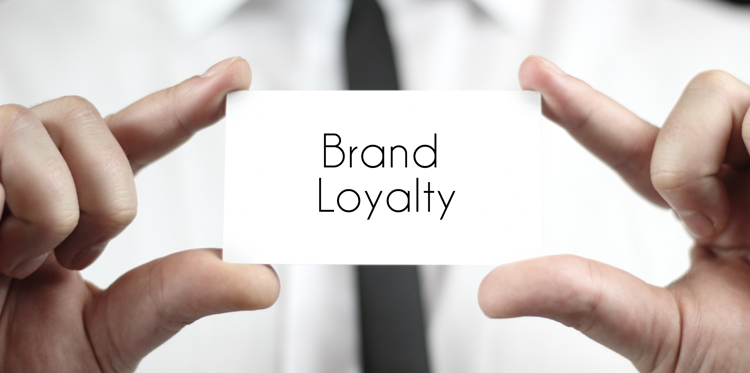Building Brand Loyalty with Personalised Customer Experiences
Brand loyalty is the ultimate goal for businesses that understand the value of repeated sales and customer advocacy. However, in a marketplace inundated with choices, brands are continually challenged to stand out and create a lasting bond with their audience. The solution? Personalized customer experiences. This long-form blog post dives into the importance of customisation in driving brand loyalty. We'll explore strategies for implementing personalized experiences, highlight successful case studies, address challenges, and provide actionable insights for creating a more loyal customer base through personalisation.

Introduction
Brand loyalty is the holy grail of business. It's more than just a one-time sale; it's about creating a devoted and steadfast following that chooses your brand time and time again. However, in an age where consumers are exposed to an abundance of marketing messages and products, cultivating this loyalty is no easy task.
Personalized customer experiences have emerged as a leading approach for building and sustaining brand loyalty. From tailoring product recommendations to individual customer preferences to customizing the buying process, personalisation demonstrates care and understanding of the customer's needs. This level of attention has a significant impact on the customer's perception of the brand, leading to increased loyalty.
In this article, we will dissect the various aspects of personalized customer experiences and provide actionable strategies for enhancing brand loyalty through personalisation.
Understanding Personalised Customer Experiences
In its essence, personalisation is about treating customers as individuals. Gone are the days of generic mass messaging—modern customers expect brands to know them, understand their preferences, and provide a truly unique experience.
A personalized customer experience is a tailored interaction between a brand and a customer designed to meet the customer's specific needs and preferences. This can manifest in several ways, such as recommending products based on past purchases, special offers curated for their interests, or services delivered in the customer's preferred style or channel.
The significance of personalized experiences lies in their ability to cut through the noise of generic marketing, connecting with customers on a personal level. When customers feel that a brand values them as individuals, they are more likely to return and become ambassadors for the brand.
The Essence of Personalised Customer Experience
Personalized customer experience refers to the custom-tailored approach businesses take to engage with their customers, aiming to cultivate deeper customer loyalty and more meaningful customer interactions. This process often encompasses analyzing customer data to understand preferences, behaviors, and needs throughout the customer journey. By leveraging insights from customer feedback, such as responses gathered through customer surveys, companies can refine their customer experience personalisation strategies. These strategies are critical in ensuring customers feel understood and valued, transforming them into engaged customers who are more likely to advocate for the brand. Essentially, creating personalized customer experiences focuses on delivering relevant content and offers to individuals, making every touchpoint in their customer interactions feel unique and catered to them. The effectiveness of a personalized customer experience in enhancing customer engagement and loyalty underscores the importance of being strategic and deliberate about customer engagement strategies.
Benefits of Personalised Customer Experiences
Increased Customer Satisfaction
When a customer is offered an experience that aligns with their tastes, it leads to a higher level of satisfaction. Customers appreciate the convenience and personal touch associated with a personalized experience, which in turn can lead to an improved perception of your brand.
Enhanced Brand Loyalty and Retention
A study by Epsilon found that 80% of customers are more likely to make a purchase when brands offer personalized experiences. Furthermore, customers who feel a personal connection to a brand are 60% more likely to consider that brand when making a repeat purchase.
Improved Customer Lifetime Value
Loyal customers are incredibly valuable as they tend to spend more over their lifetime. By offering a consistent and personalized customer experience, brands foster a higher customer lifetime value, contributing to the bottom line.
Strategies for Implementing Personalisation
Achieving the right level of personalisation requires a strategic approach. Here are key strategies for implementing personalized customer experiences:
Data Collection and Analysis
The foundation of any personalisation strategy is data. Understand your customers by collecting and analyzing their behavior, purchase history, and other relevant information. Implement systems for tracking this data, such as customer relationship management (CRM) software.
Personalized Communication
Address your customers by their name, and personalize your communication based on their preferences and engagement history. Use the data you've collected to send targeted emails, personalized offers, and relevant content.
Tailored Product Recommendations
Leverage past purchase behavior and browsing history to offer product recommendations that are likely to resonate with each customer. This can be through your website, email, or even in-person sales interactions.
Customised Promotions
Design promotions that cater to the specific interests and needs of your customers. This could be a birthday offer, a loyalty reward, or a special discount on products they've previously shown interest in.
Case Studies
Tangible examples of brands that have successfully used personalisation to foster loyalty can provide valuable insights. Here are a few case studies to demonstrate the impact of personalized customer experiences:
Amazon: The Personalisation Pioneer
Amazon's recommendation engine suggests products based on what each customer has viewed and purchased. This level of personalisation has played a significant role in Amazon's customer retention.
Starbucks: Customisation as the Norm
Starbucks has made customisation a part of its brand. From the 'name-on-cup' personalisation to customizing drinks, Starbucks encourages customer involvement and creates a more individualized experience.
Challenges and Solutions
Despite its clear benefits, personalisation is not without its challenges. Here are some common obstacles and how to overcome them:
Data Privacy Concerns
In light of increasing data breaches and privacy regulations, customers are more cautious about sharing personal information. Ensure that data collection and usage are transparent and provide value in exchange for customer data.
Technology Limitations
Not all businesses have the resources for sophisticated personalisation technology. Start with what you have, focusing on the customer data that can be most easily collected and analyzed.
Overpersonalisation Risks
There is a fine line between personal and invasive. Be cautious not to overstep by carefully considering the information you collect and how you use it. Always provide an opt-out for customers who don't want to be tracked.
Strategies to Overcome Challenges
-
Prioritize Data Security and Privacy: Invest in secure data storage and management and be transparent about your data usage policies.
-
Start Small, Scale Big: Implement basic personalisation tactics and gradually expand as your resources grow.
-
Test and Optimize: Continually test different levels of personalisation to find the right balance for your audience.
Enhancing Customer Engagement and Loyalty through Personalisation
Personalisation in customer experience is not just about tailoring products and services to meet individual needs; it's about fostering a deeper connection between the brand and its consumers. Customer experience personalisation can significantly boost customer loyalty by making each interaction feel unique and valued. Engaging customers through multiple customer service channels not only caters to the varied preferences of the entire customer base but also opens up avenues for two-way communication. This direct line allows businesses to gather insights into buying behavior, preferences, and product specifications that the target audience cherishes.
Loyalty programs, therefore, are not just rewards programs; they are a critical component of a personalisation strategy intended to encourage repeat purchases and foster repeat business. By recognizing and rewarding returning customers, brands can express appreciation for their loyalty, further cementing this bond. Each customer touchpoint, from online browsing to in-store shopping, offers an opportunity to engage customers and collect data that feeds back into refining the personalisation approach. This cycle of interaction, data collection, and adaptation ensures that personalisation efforts remain relevant and impactful, driving loyalty among the entire customer base.
Conclusion
Personalized customer experiences have become the new standard in the battle to win and retain customers. By treating customers as individuals and providing tailored interactions, brands can forge deep, personal connections that lead to lasting loyalty.
The path to successful personalisation is paved with challenges, but the benefits far outweigh the risks. Businesses that prioritize a personalized approach will not only see improvements in customer loyalty but also in customer satisfaction and lifetime value.
In today's competitive landscape, personalisation is no longer a luxury but a necessity for brand survival and success. It's time for businesses of all sizes to invest in understanding their customers and delivering the unique experiences that build true brand loyalty.
Remember, loyalty is a two-way street. Show your customers you value them, and they will show you their loyalty in return.
To learn more about implementing effective personalisation strategies for your business, we encourage you to reach out to our experts for a personalized consultation. It's the first step towards a brand-customer relationship that's truly one of a kind.


Leave a comment